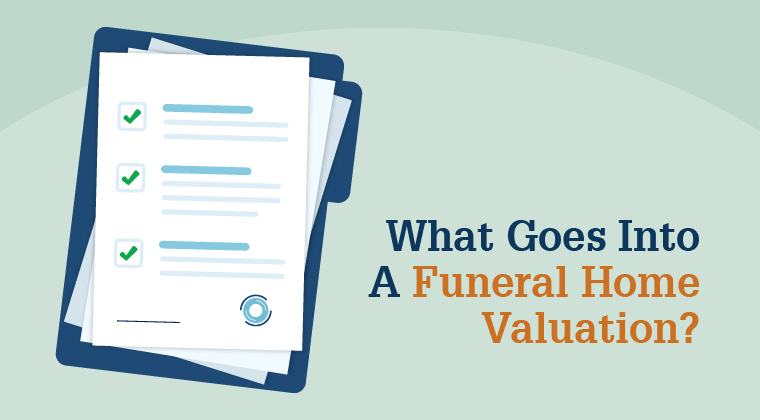Even if you don’t plan to sell your funeral home or cemetery in the near future, obtaining yearly valuations offers powerful insight into the health of your business. A valuation provides you with the baseline knowledge of how much your business is worth and can be a way to monitor and manage its growth.
That said, not all valuations are created equally. For funeral businesses, a proper valuation requires a variety of considerations, including your management, capital structure, and future earnings prospects. Your debt, cash, and A/R are also key components when determining the net value of your business.
Most Common Method of Valuation in the Funeral Profession
EBITDA Multiplier
The EBITDA multiplier method takes your EBITDA (Earnings Before Interest, Taxes, Depreciation, and Amortization) and multiplies it by a variable specific to the industry. For average to larger funeral homes in today’s market, this ranges from 6x to 7x and much higher for prized firms when the real estate is included.
Components Considered During a Valuation
When determining the value of a funeral business, a valuation expert will consider several key components of the business. These include historical trends, labor, and tangible assets.
Historical Trends
This is critical to review the probability for performance for a new owner. Multiple years of financial data are analyzed side by side to determine the likely outcome/budget/proforma. One time expense items and owner related expenses are reviewed in great detail.
Labor
There’s nothing more costly in an organization than it’s payroll. And with recent trends we are seeing payroll increased by 5-8% of net sales over prior years. This section requires a very detailed analysis. It will consider what the payroll would need to look like if the ownership is no longer there.
Tangible Assets
Every funeral business has buildings, equipment, inventory, receivables, cash, and the list goes on. What stays? What is not included. The value of the real estate will be key in determining the most appropriate valuation method…Will it include the real estate or will the real estate have to be leased?…How will that impact the value?
Why an Annual Valuation Is Necessary
Beyond the possibility of selling your business, an annual valuation provides the information you need to understand your current positioning and plan for the future. Will you like the result? Will it impact your retirement? What do you need to live off of? How will you know?
By obtaining an annual valuation, you’ll:
- Deeply understand your finances: If your finances are currently in disarray, a valuation will force you to work with an accountant and organize your key financial metrics. Most importantly, you’ll be able to see your business’s profitability.
- Set realistic goals: Once you’ve obtained a valuation, you’ll understand how your business is currently performing, which will be an essential baseline to your planning. If your business is performing well, you can then plan for potential expansion. Alternatively, you can create initiatives to turn things around if it’s underperforming.
- Plan for your exit: No matter how near or far, all funeral businesses will eventually be sold — that is, unless you plan to live forever. By obtaining regular valuations, you’ll be able to anticipate your gains (or losses) in the event of a sale, then plan your subsequent ventures accordingly.
Make the Most of Your Data
While simple forms of valuation can be performed on your own, the only surefire way to gain a realistic picture of your funeral home’s health is through a professional valuation performed by an accountant or industry experts such as Johnson Consulting Group.
At Johnson Consulting Group, our team of death care experts have performed thousands of valuations of funeral businesses of all stages and sizes. Through these valuations, our team of death care consultants can help you parse through the numbers and understand what exactly they mean for the future of your business.
At the end of the day, a valuation is simply a number. What’s most important is how funeral directors utilize these numbers to make changes for strategic growth. Get in touch today to work with our team of experts, establish exactly how much your business is worth, and discover what you can do to increase its overall value.
